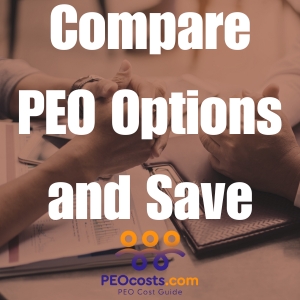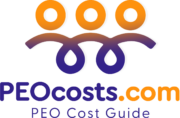
How HR Management Solutions Help Reduce Legal Risk for Employers
As someone who has spent years helping businesses navigate the ever-changing landscape of employment law and HR compliance, I can say with confidence: trying to manage all your human resources needs in-house without expert guidance is risky. Too many small and mid-sized business owners assume they can “figure it out” or use templates they find online—until something goes wrong.
I’m Carol Sanders, a Harvard University graduate with a degree in psychology and human resources. I run a successful PEO consulting firm in Massachusetts and serve as a writer and editor for PEO Costs. Over the past eight years, I’ve worked with dozens of employers who thought they were on top of their HR responsibilities—until they found themselves dealing with employee disputes, payroll issues, or compliance violations. What they needed, and what many companies today rely on, are HR management solutions that reduce legal exposure while improving efficiency.
Let me explain what those solutions look like, how PEO services fit into the picture, and how they help businesses stay protected.
The Legal Risks Employers Face Today
Running a business means wearing a lot of hats—but HR is one area where guessing can be costly. From hiring and onboarding to termination and benefits administration, there are layers of state and federal laws you’re expected to follow. Some of the most common legal risks I see include:
- Misclassifying employees as independent contractors
- Failing to comply with wage and hour laws
- Incomplete or outdated employee handbooks
- Discriminatory hiring or firing practices
- Non-compliance with OSHA and workplace safety standards
- Mishandling COBRA, FMLA, or ADA requirements
- Data security risks with employee information
Even well-meaning employers make mistakes. All it takes is one misstep—a missed filing, a mishandled complaint, or an improperly calculated paycheck—to trigger audits, penalties, or even lawsuits. And if you’re operating across multiple states, it gets even more complicated.
This is exactly where HR management solutions can step in and protect you.

What HR Management Solutions Actually Do
When we talk about HR management solutions, we’re referring to the systems and services that help you handle everything related to your employees—from hiring to benefits to compliance. These can include software platforms, in-house HR professionals, or outsourced support through an HR services provider.
A comprehensive HR management solution helps with:
- Payroll and tax filing
- Benefits administration
- Compliance with federal and state labor laws
- Employee documentation and recordkeeping
- Risk management and workplace safety
- Employee relations and conflict resolution
- Onboarding and offboarding support
But having access to tools or platforms isn’t enough. You need knowledgeable experts who can guide you through HR decisions and ensure you’re aligned with the latest legal requirements. That’s where PEO services become especially valuable.
How PEO Services Reduce Legal Risk
PEO stands for professional employer organization, and if you’re not already familiar with the term, it’s time to learn how this model works. When you partner with a PEO, you enter into a co-employment agreement. That means the PEO shares certain employer responsibilities with you—particularly around payroll, tax filing, benefits, and compliance.
While you still run your business and manage your team, the PEO becomes the “employer of record” for tax and legal purposes. This structure offers several advantages when it comes to reducing your legal exposure:
1. Shared Legal Responsibility
With a co-employment model, the PEO assumes part of the liability around HR compliance. They help you navigate complex regulations and often provide legal support if issues arise. This is especially helpful when dealing with employee disputes, wrongful termination claims, or wage and hour audits.
2. Expert-Level Compliance Support
PEOs stay current on federal and state labor laws so you don’t have to. Whether it’s changes to minimum wage, sick leave mandates, or new reporting requirements, your PEO partner will guide you through what needs to be updated in your policies or payroll practices.
3. Stronger HR Documentation
One of the easiest ways to protect your business legally is through documentation. A PEO can provide legally sound employee handbooks, performance review templates, disciplinary forms, and more—all tailored to your specific business needs and location.
4. Better Benefit Options (with Lower Risk)
By pooling employees from multiple businesses, PEOs offer access to top-tier health insurance and retirement plans. But just as importantly, they handle the compliance aspects of those benefits, ensuring proper notices are distributed and deadlines are met.
5. Workplace Safety and Risk Assessments
Many PEOs offer on-site safety audits, OSHA training, and guidance on how to reduce workers’ compensation claims. By proactively managing risks, you’re less likely to face costly legal action or penalties.

A Real-World Example
One of my clients, a growing construction firm in Massachusetts, came to me after being fined for misclassifying employees and failing to provide accurate overtime pay. They had been using spreadsheets and outdated software to manage their HR—and it finally caught up with them.
We brought in a PEO that handled their payroll, ensured accurate classification, and implemented proper time-tracking tools. They received guidance on updating their job descriptions, revised their handbook, and rolled out a new employee onboarding system. Not only did they eliminate the compliance issues, but they also gained peace of mind knowing their HR was being handled professionally and legally.
Peace of Mind for Growing Businesses
Legal risk in HR isn’t something you notice until there’s a problem. But by then, the damage—financial and reputational—can already be significant.
Outsourcing your HR to a reputable provider, particularly one using a co-employment structure, takes the guesswork out of compliance. You’re backed by a team of professionals whose job is to keep your business protected, while you focus on leading and growing your team.
I’ve worked with businesses of all sizes and across many industries. In nearly every case, the companies that succeed in the long run are the ones that invest in systems that reduce risk before it ever becomes a threat.
Final Thoughts
HR management solutions don’t just make your operations more efficient—they actively shield you from legal trouble. When you combine powerful technology, expert support, and a shared-responsibility model like co-employment, you create a solid foundation for your business to thrive with less risk.
If you’ve been trying to manage HR in-house while juggling compliance concerns and constant regulation changes, I encourage you to explore what a strategic HR partner can do for you. In my experience, the right partnership doesn’t just protect your business—it empowers it.
About the Author
Carol Sanders is a Harvard University graduate with a degree in psychology and human resources. She is the owner of a successful PEO consulting firm in Massachusetts and serves as a writer and editor for PEO Costs. Carol has spent the past eight years helping companies streamline HR, navigate co-employment agreements, and reduce legal risk through expert HR outsourcing strategies.


